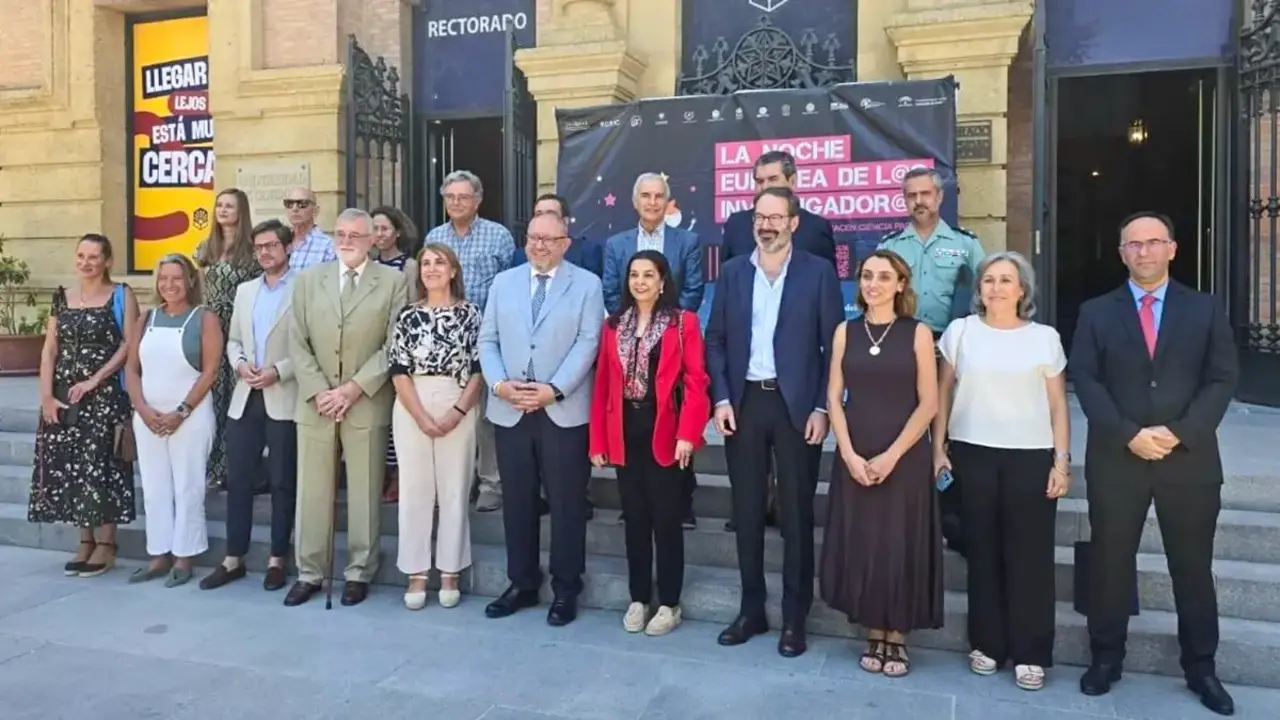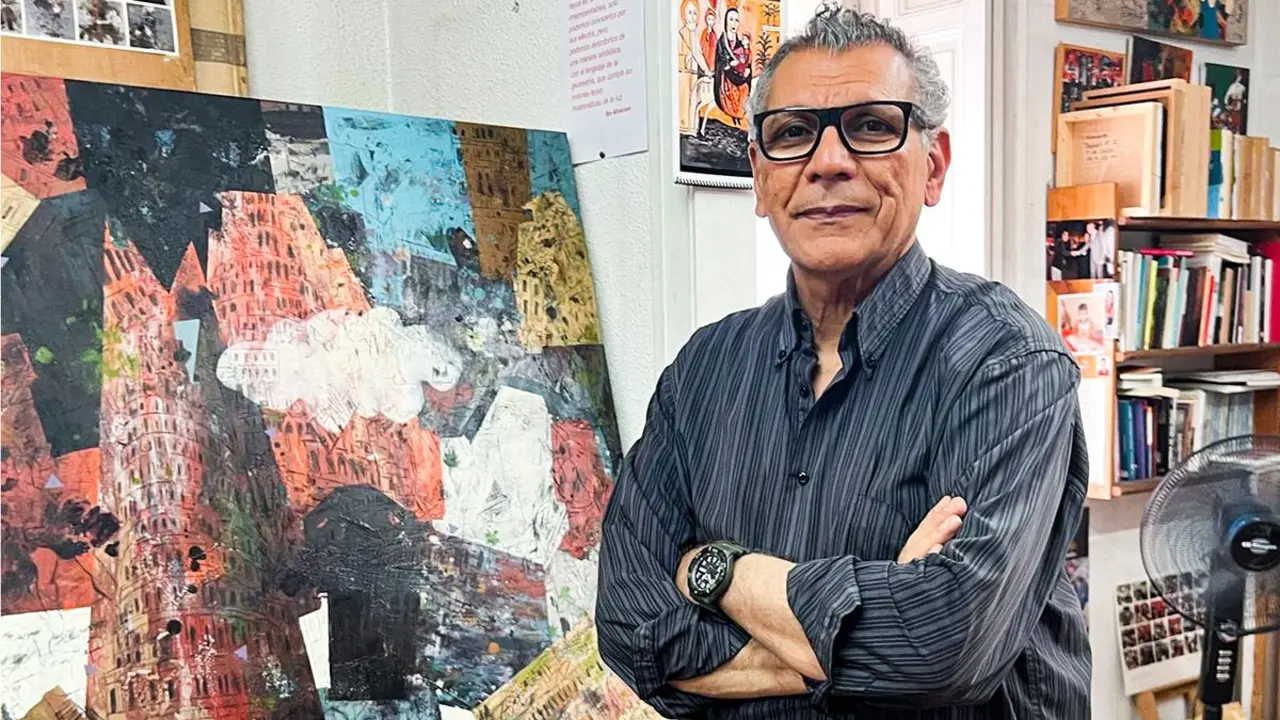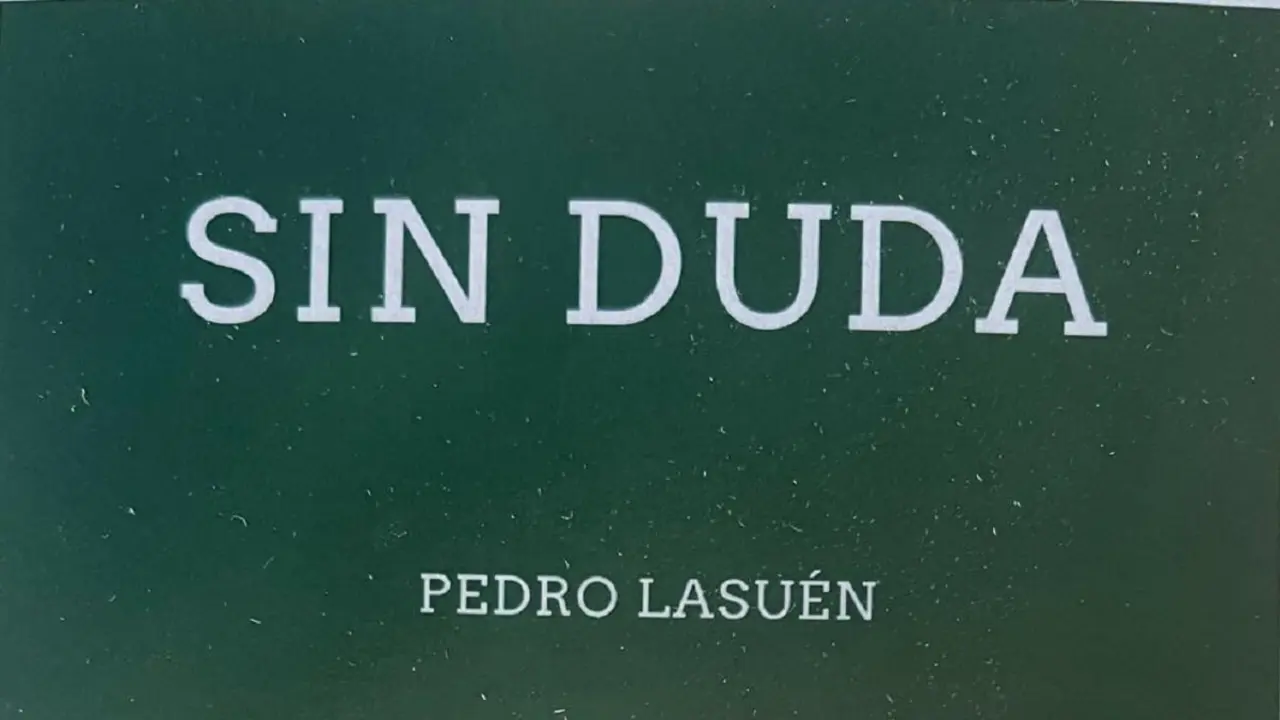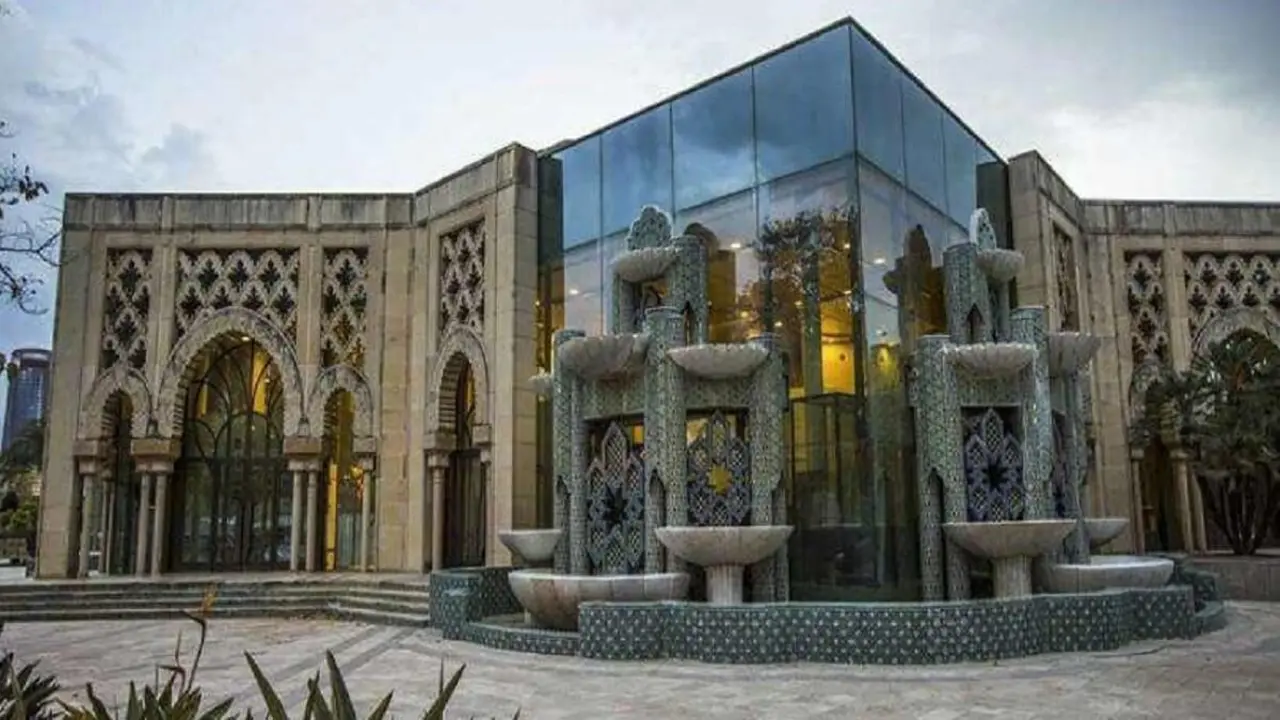Spanish culture increases its influence abroad
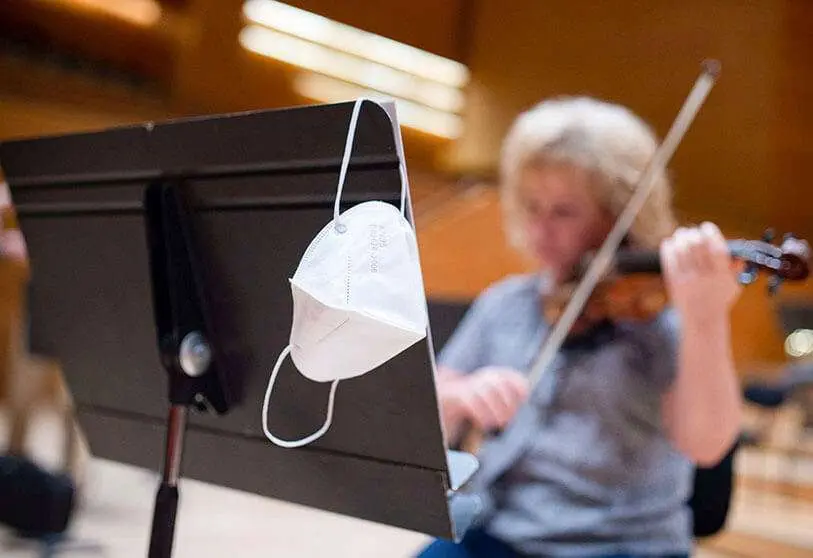
The cultural sector is suffering greatly from the coronavirus crisis and yet, during the quarantine, citizens have consumed more culture than ever before. How can we explain this paradox? The Fundación Alternativas has presented its annual report on the "State of Culture 2020: Spain's cultural action abroad" in an attempt to reveal these unknowns and propose new challenges for improving this sector.
This report gives a twist to the idea of the culture sector. It does not only talk about the state of the cinema, new technologies, theatre, book production, music, events... "We have to understand that cultural action is diplomatic action", explained Diego López, Vice-President of Fundación Alternativas and President of the Foundation's Advisory Council on European Affairs.
López pointed out that, since 21 July, a new perspective has been opened up for cultural cooperation in Spain thanks to the European Recovery Fund. This fund will be issued by the European Commission to the countries most affected by the coronavirus, such as Spain. "We have the opportunity to access very powerful funding for cultural cooperation".
This European recovery fund is being discussed in Parliament and will have to be approved by the Commission. Initially, Spain would receive 140 billion euros. This sum will be granted according to the projects that are presented and Mr López encourages MEPs to "present interesting projects to strengthen external action".
The report states that "new instructions have recently been sent to the cultural departments of embassies indicating the change in the role of the 'cultural advisor' from 'programmer' to agent or facilitator". This is an acknowledgement of the need for updating to adapt to the needs of cultural creators.
Culture is a business and, in one way or another, it seeks to be profitable within the national economy. The President of Spanish Cultural Action, José Andrés Torres Mora, said that "although we think that ideas and knowledge cost nothing, life is not free for creators, and that is why culture has a price and society must pay it".
During the presentation of the report attended by Atalayar magazine, Enrique Bustamante, coordinator of the report, listed the most important challenges dealt with in the report. Gender equality, the development of an artist's statute and the creation of a new, more cooperative copyright document were the most innovative measures. "Fiscal policies, reduced VAT in culture, obligations to be met for digital platforms and systematic support for a harmonious digital transition within the cultural sectors should also be highlighted," stressed Bustamante.
The report sets out the main weaknesses that persist in our country, starting with the lack of private funding. Cultural activities have been progressively reduced over the last decade, with an average of 682.5 euros per household per year spent on culture in 2018 (718.3 euros in 2017). To this data we must add that public funding for culture has collapsed, especially after the coronavirus crisis.
On a commercial level, the figures have improved slightly. The economic and cultural fabric of the country was driven by 122,673 companies (112,643 in 2008) which represented 3.7% of the total number of Spanish business entities. During this same year, 690,300 jobs were created, 3.6% of the Spanish total (706,300 in 2008). The authors of the report question the dynamics that make it difficult to improve these figures.
Charo Otegui, Director of Cultural Action Programming, wanted to highlight that the dynamics are changing. "Now, with COVID-19, things have changed. It is no longer the visitors who move to the events, but the events that arrive at people's homes in a virtual way". Alfons Martinell, author of the report and expert in cultural policies of cooperation, added to this statement, saying that "Cultural life in our societies, despite the crises, maintains interest in continuing to live".
The cultural sector is visibly altered, and culture is economically at a standstill. And even so, Martinell wanted to highlight the rise of culture in the most difficult times: "Why are we capable of energising processes and reviving them in crisis situations? The author states that cultural flow exchanges have increased. "The State does not control these flows, but there are more and more actors and agents who act with an international logic", he said.
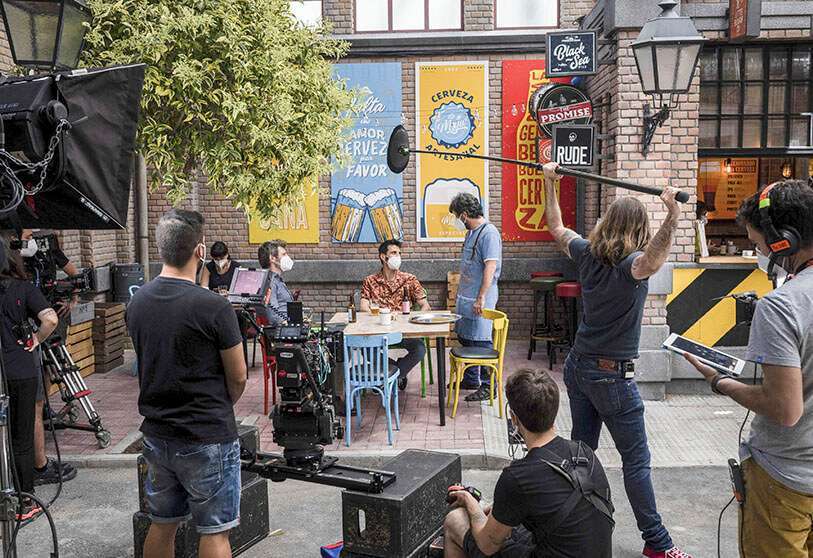
The debate which preceded the presentation of the report brought to the fore the European Commission's new proposal called "Creative Europe", a fund designed to provide guarantees to credit institutions, to promote the granting of loans to initiatives in both the cultural and creative sectors.
Creative Europe is the only programme designed to promote European culture. This is the first time that a project of this kind has been dealt with, but Pedro Velázquez, from the European Commission, complains that the project is equivalent to 0.1% of the Union's budget. "There are other funds dedicated to culture, but they are up to the Member States. The committee should tighten the screws on the States to create guidance sheets on how to invest these funds", explained Velázquez.
The project promotes the participation of cultural operators, has an office in Madrid and seems to be having a good reception. Velázquez also stressed that there are other individual mobility initiatives for artists and promoters. "It's about giving people the opportunity to move between borders", said Velázquez. These initiatives will be reinforced when Spanish companies go out to export culture and, in turn, we see European companies offering activities within the country.
Although it may seem a low figure, the truth is that perception has increased this year. The report finds that creation, production and distribution have almost exactly recovered their 2011 scores. And that public policies and external projection have increased their appreciation.
The report also focuses on the need for a foreign cultural policy that firmly supports the internationalisation of creators and consolidates cultural production and distribution networks. To this end, the report emphasises diplomatic actors. The Spanish state has a multitude of bodies that promote culture in Spain, from the Ministry of Foreign Affairs, the embassies, to the Institute of Foreign Trade (ICEX). All these organisations advocate for the dissemination of culture abroad and the experts in the report encourage them to encourage their activities in order to export more culture.
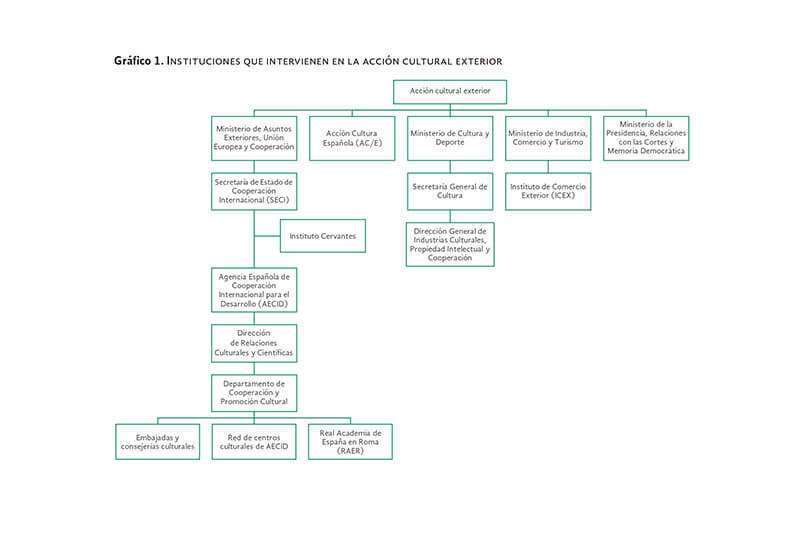
The Report on the state of culture in Spain (ICE) is a publication of the Observatory of Culture and Communication of Fundación Alternativas. The 2020 edition is dedicated to Spain's cultural action abroad, identifying actors, policies and main achievements, and carrying out an evaluation that allows proposals to be made to increase effectiveness and efficiency, also taking into account the effects of the Covid-19 on traditional models.
Under the coordination of Enrique Bustamante and with the participation of authors of recognised prestige, the ICE has become a reference in the field. Since 2011, six editions have been carried out which have allowed us to focus on different effects and problems.




